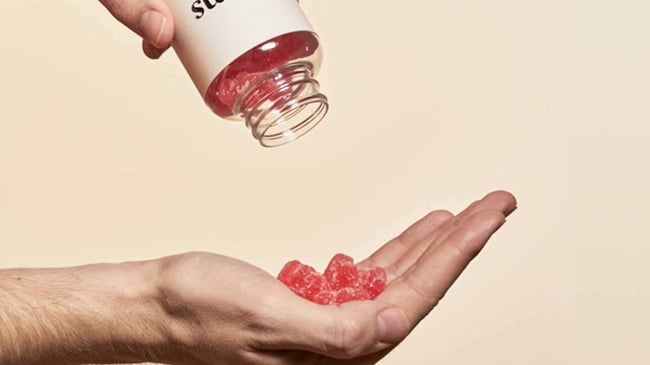

Being healthy starts with what’s on your plate and can continue in small capsules taken in moderation.
There are two kinds of people: those who rush to take vitamin C tablets as soon as they feel a cold coming, and those sceptics who don’t believe in taking any kind of supplements. Between the two, it’s easy to get lost in this industry which was valued at 1.8 billion euros in France in 2017 according to a report by the National Union of Food Supplements (Synadiet) published on March 28, 2018. And, according to this same study, while two thirds of French people believe in the benefits of taking supplements, 45% consider themselves “poorly informed” and 20% feel like they’re “not at all informed”.
Temporary compensation
Overall, the general public finds supplements useful to compensate for an unbalanced diet or to prevent minor ailments. However, “unlike drugs, their marketing does not require individual marketing authorization”, shares the National Agency for Health and Food Safety on its website.
In other words, all those therapeutic effects that are praised by supplements are not necessarily scientifically proven. This is why it’s important to choose the right products to be sure you’re able to respond to your body’s temporary nutritional deficiencies. Remember that supplements should be used temporarily and shouldn’t be considered as a miracle solution to take for life.
It’s best to consult a health specialist first.
Before considering taking food supplements, it may be interesting to try to improve your lifestyle and make sure you’re following a more varied and balanced diet. You can start doing this by food journaling. All you have to do is write down a typical week of what you eat in a notebook and go see a dietitian who can not only do a blood test to see what you’re possibly deficient in, but also give you advice on how to optimise your meals. This remains the best way to know which supplement you actually need to take rather than going to the store yourself and guessing what’s best for your health.
Otherwise, instead of going to the first organic convenience store, we recommend you first go to a pharmacy and ask to speak to the pharmacist (and not to the pharmacy technicians who don’t have the same degree of knowledge) to explain your concerns and desires. He or she will be able to direct you to the right supplement. From there, you can turn to more natural and unique alternatives elsewhere.
Food hypes
Besides the supplement capsules that contain an isolated active ingredient, mixed superfood blends like fruit juices are on the rise for their more natural and appetizing appearance. Chaga powder, kiwano, or kurakkan may not mean anything to you yet, but it won't be long. Proof of this, Virgil Abloh, the creator of the cutting-edge label Off-White and formerly the head of Louis Vuitton's men's collections, even launched with Wild & the Moon’s "Blue Magic" collaboration that was for sale in a limited edition at Le Bon Marché. This juice owes its mesmerising blue color to spirulina, a cyanobacterium (a form of bluish micro-algae) qualified as a superfood thanks to its richness in protein, iron, and antioxidants. What’s more, drinkable collagen supplements, which became popular in Asia and the United States, is beginning to become a trend in France. But don’t expect a visible miracle to happen overnight: taking a single beauty shot isn’t about to make your complexion fresh since your skin is one of the last organs to benefit from what you ingest orally. Hence the importance of being well informed so as not to fall into the false promises of this poorly regulated industry.
Reliable websites
In general, avoid going onto little-known websites, especially if they’re foreign since legislation varies from country to country. In this regard, we recommend these supplements that are as chic as they are effective: check out The Nue Co, Bodyism, and Apicia. You may also want to refrain from combining several supplements at the same time to avoid having a counterproductive overdose of certain nutrients. Above all, be sure to respect the prescribed doses: excessive intake will definitely not make you healthier or hairier, but will simply be eliminated by your kidneys, at the risk of overworking them. If you notice anything unusual over time, talk to your pharmacist or doctor.
To sum it up, supplements can be a great help as long as you approach them with the right philosophy: a temporary boost and not a be-all-end-all miracle to be swallowed dry.



